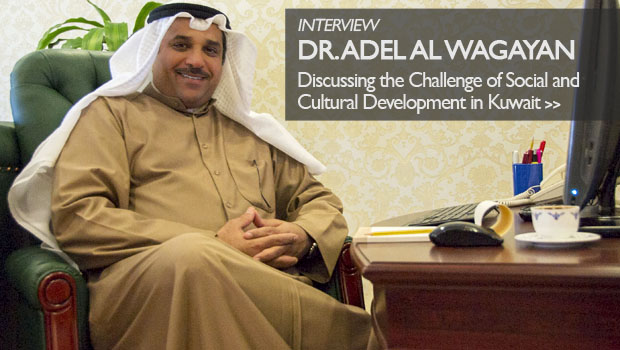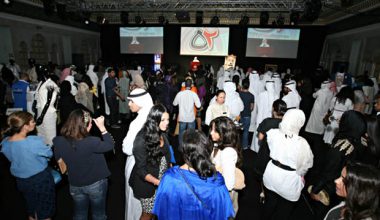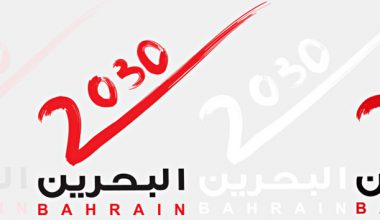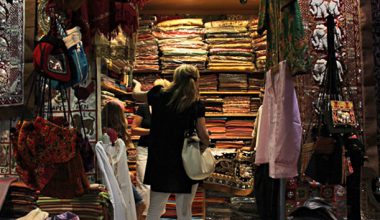
Citizens around the world want to see their beloved country thrive in their region, support the young and look forward to the future. That is exactly why we had a talk with His Excellency The Secretary – General of the Supreme Council for Planning and Development, Dr. Adel Abdallah Al Wagayan and discussed the pros and cons of our society, the solutions that private and public sectors can find together, as well as what the people of Kuwait can do to ensure positive development for the future.
Adnan Al-Timimi sat down with the enthusiastic Dr. Al Wagayan and discussed the different aspects of social development in Kuwait in a very intriguing conversation…
Plan after plan, issue after issue. How do you put your foot down and say "this is what is wrong, and this is how we're making it right"?
We do that through multipartite dialogue with government officials, private sector and NGOs. We employ reasoning and evidence-based research reporting. We investigate key macro problems using experts and provide set of alternative scenarios along with possible solutions and it worked! In 2010, we moved from merely suggesting government plans that went nowhere to a stage where a joint parliament-government approval of Midrange and annual plans was captured and crystalized into laws.
What does the five-year plan/program the Supreme Council for Planning and Development emphasize on? What issues will be planned and developed?
Very briefly, the national four-year midrange plan tackles two types of issues: those problems reaching critical levels and require immediate intervention including housing, healthcare, educational institutions, and public utilities to name a few. The second part includes structural changes needed in economic and social fronts, re-establishing National-Aliens demographic balance, and creating competitive educational system and youth involvement to name a few
You cannot make a good without a bad. What are the bad aspects in our society?
In my opinion, a major “bad” in my opinion is not worrying enough and taking active measures to deal with the future and the challenges we will face given that we rely totally on oil. This led to the unfortunate state where we are thinking that we are always shielded from the economic upheavals and global turbulent industrial and commercial shocks by oil production. Such sense security leads us to take things for granted in an epidemic proportion.
That attitude is shown in many forms such as overconsumption of subsidized goods and services, reaching high debt-to-income ratio in many limited and mid-income family budgets, engaging in conspicuous consumption to attain status rather that satisfying real need, and gradual abandonment of national productivity to more reliance on immigrants, as well as lack of appreciation for education especially in science and technology and other professional fields. These trends run counter to what our forefathers struggled and survived in this harsh area of the world.
It’s unfair to mention “bads” and forget “good”. For once, I am quite happy to see many young Kuwaiti intellectuals are discussing social and economic issues face-to-face or online to find real solutions not just to blow steam. I also see that some schools are introducing extracurricular activities, and some newly formed institutions are the bright and promising.
Through qualitative research, what did you find to be surprising in Kuwait compared to the GCC and the world?
Education, freedom of press, and political maturity are relatively high in Kuwait. Yet at the unofficial level, this still didn’t provide a “emotional-free” and “political-free” forums to deal with our current problems and upcoming challenges. This paradox is perhaps linked to the lack of “group” and “community” spirits where we tend to be more individualistic in thinking and in management.
A more surprising observation in Kuwait is that many young Kuwaiti entrepreneurs are faced with market niches dominated and controlled by foreigners with no room to enter and compete.
How can Kuwaitis perform forms of community service?
As a start, it can be done through collaborating with key people in the neighborhood. It can be done by volunteering groups and NGOs, and engaging in extracurricular activities in the school and higher education organizations.
At the institutional level, administrators should provide incentives for Kuwaitis to engage in such activities and encourage them. Its imperative that key figures are open to such community service and even better, they engage themselves in such activities.
At the personal level, Kuwaitis should realize the social importance of their role and set aside ample time to participate in it. My advice is to focus on those activities that are within the domain of the person’s interest and could develop a social skill in the process.

The youth are the future. What steps must they go through to ensure safety and security to our state?
In my opinion youth is a driving force. If integrated effectively into development, you can see wonders. The most important and initial stage is reforming our education system. As a nation, we are generous in spending but we are not competitive on an international level. More disturbing is that our international rankings in TIMSS and PIRLS are at the bottom 10%. A plethora of research showed the correlation between national academic achievements and level of development across world countries, especially on the medium to long run.
Merit-Based system in hiring in key posts should be instituted fully. If success is not rewarded, then human nature tends to focus less on effort on the job and more on social, politics, and non-performance related pressures to attain income.
Youth also play either fruitful or destructive role in internal and external security. In many countries, deviant and antisocial behaviors flourish when moral development of youths is generally lacking. Nurturing positive values and engaging in positive extracurricular activities to curb negative behaviors is of paramount importance to our safety and security. Government efforts aimed at fighting drug addiction, violent crimes, gang formation, and other forms of youth crimes through Law and Order is necessary but not sufficient by itself to contain such practices and preventing it from reaching epidemic proportions. Government around the world are resorting to ways to gain the community trust and establish community groups such as “neighborhood watch” and “crime stoppers” and providing them cooperation and respect for their efforts.
Young entrepreneurs are emerging every day. Some succeed and some fail. How can the society improve on that? Can government support them in any way or is it in the hands of the private sector?
I can say that it’s not simply sole role of the government or private sector to encourage entrepreneurship in Kuwait, but rather it’s the synergic public-private initiatives and solutions that can make a difference.
Businesses should trust and encourage locally owned and operated entrepreneurs so they can flourish. More often than not, trust is placed in existing businesses dominating supply chains or retail chains thus preventing new MSEs from even trying to compete and gain a foothold in the marketplace. The encouragement of Kuwaiti owned and operated SMEs and integrating them as part of the supply chain or retail chain is detrimental to their profitability and survival in the long run.
Are we all up to the challenge? Do we have enough time?
I don’t think we are there yet, but we are moving slowly there. The challenge is real and other nations are growing in a much faster pace. But if there is a will, there is a way. As for time, we need to proceed in much faster pace, and stop hesitating about implementing solutions; otherwise we become part of the problem. Its not rational now to shed tears on time lost, but count what we can do in the time available for us. I am positive that we can.
How must we deal with tomorrow?
Dealing with tomorrow should be based on what challenges that await us. It also depends on what opportunities we can grab. But without an actual view of the whole picture, and putting things in perspective, dealing with tomorrow would be fragmented at best.
The worst option is the “do nothing” approach. That stems from total denial of our problems or lack of strong will to deal with these problems for various reasons. “Doing nothing” should be wiped off from our options.
What message do you want to spread to Kuwait, its people and its future?
The message is simple. What we do now will impact our tomorrow. Our natural wealth doesn’t belong to us now, but also extends to people who will live in this nation. We all carry the responsibility for the future, with oil or without. And we owe it to our future generations that they also can enjoy a good quality of life.







